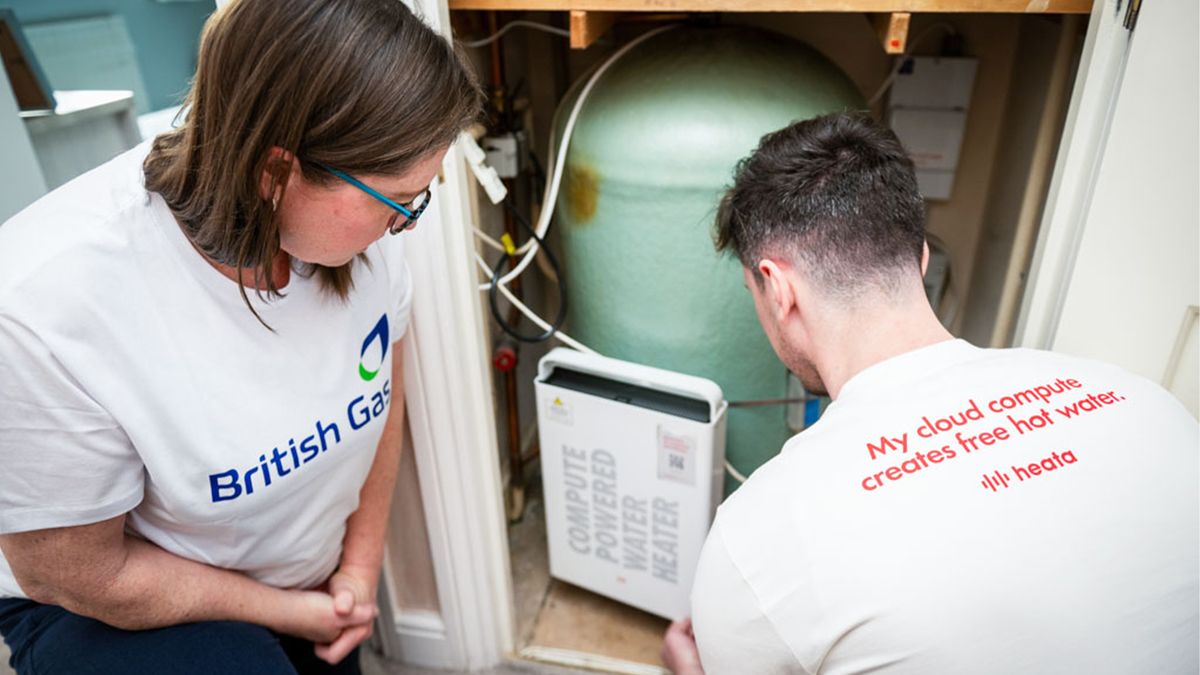British Gas is carrying out a trial using excess heat from data processing to provide free hot water in homes.
The company has signed a deal with sustainable cloud business heata that will see the heat generated by corporate data processing channeled directly into hot water cylinder in the home.
Not only could this cut heating costs for homeowners, British Gas said it also avoids the need for energy-intensive cooling in the data center.
The system works through a small compute unit that’s attached to the resident’s hot water cylinder. This works as a tiny ‘virtual data center’, processing data for cloud computing customers while providing free hot water for the homeowner.
Each heata unit can provide up to 4kWh of hot water per day, according to the company.
British Gas has now officially launched the trial scheme, running its own data processing workloads on the heata units in ten employees’ homes.
“Waste heat is a big problem for data centers, leading to significant energy costs for cooling. Yet heat is valuable. On the other side of the coin you have an energy crisis and people struggling to heat their homes,” said Chris Jordan, co-founder of heata.
“British Gas launching this trial is a huge step and we would love to see other firms following their lead. Being able to say you have reduced your compute carbon footprint and provided free hot water to people during an energy crisis is hugely powerful for companies who take pride in their sustainability and social impact.”
Operators are cutting down on data center waste heat
While this is a tiny trial project, there are increasing moves to use the waste heat from data centers to power homes.
The first large-scale scheme in the UK kicked off at the end of 2023 in the London boroughs of Hammersmith and Fulham, Brent, and Ealing, serving 10,000 new homes and 250,000m2 of commercial space, as well as a hospital.
“Recycling the huge amounts of wasted heat from our local data centers into heat and energy for local residents, a major hospital and other users is an exciting and innovative example of OPDC’s support for the mayor’s net zero ambitions,” said David Lunts, chief executive of the Old Oak and Park Royal Development Corporation (OPDC).
A report last year from techUK said the concept of data center heat reuse had significant promise, but identified a number of problems, including seasonal fluctuations and variable energy demand.
Meanwhile, new data centers take a while to fill, and operators have limited control over external factors such as occupancy levels. This, techUK noted, means that relying on exporting the majority of the available heat based on the maximum projected IT load carries a significant risk.
The report recommended that data centers should look to reduce their energy consumption before implementing heat reuse.
MORE FROM ITPRO
Source link
